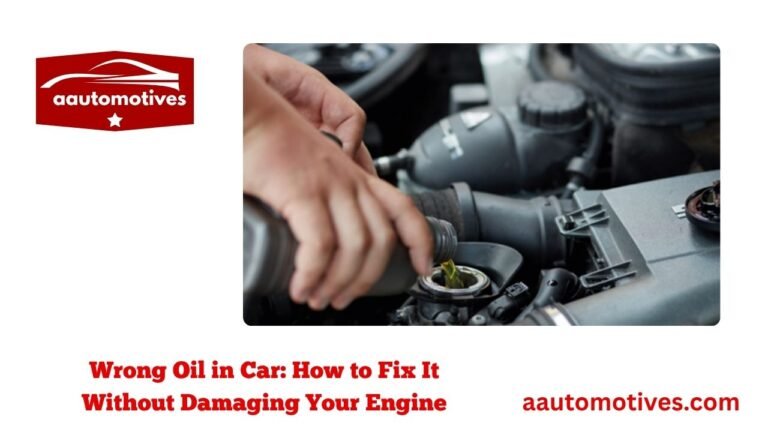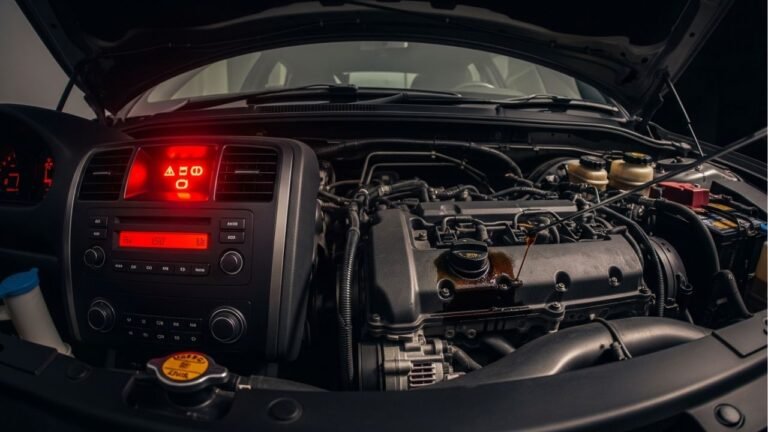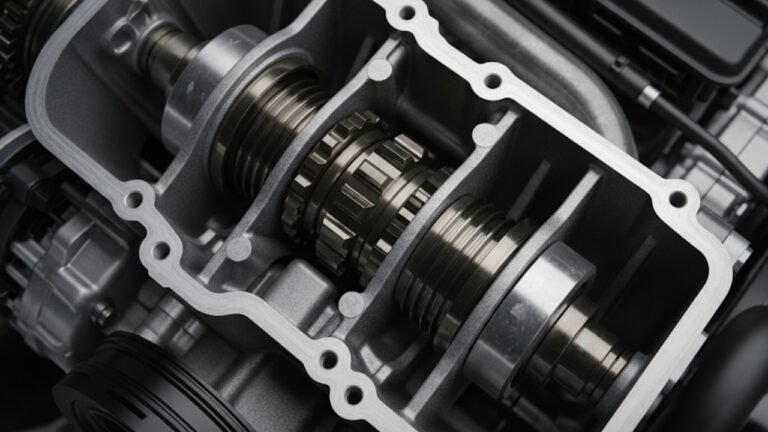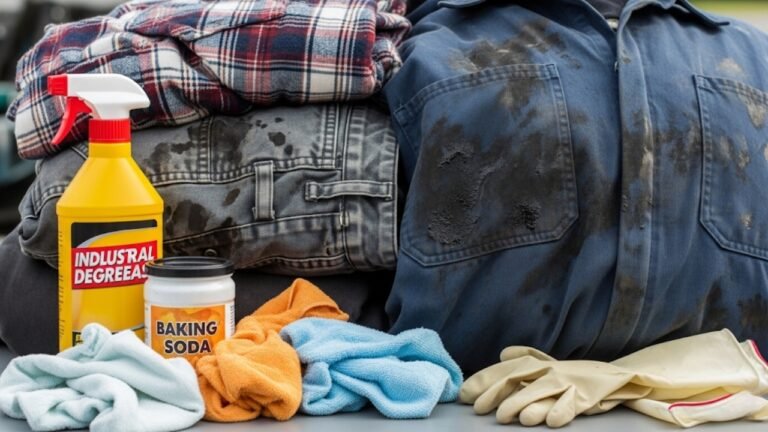Car Gear Oil Leakage: What It Means

Have you ever noticed a dark, oily stain on the ground where your car was parked? At first, you might think, “It’s probably just a bit of old engine oil.” But what if it’s not? What if it’s gear oil leaking from your car?
Car gear oil leakage can seem small at first. But like a leaky roof before monsoon, if you don’t fix it in time, it can lead to bigger, costlier problems. I still remember the first time I found a strange, thick fluid under my car. It had a strong, sulfur-like smell. It wasn’t engine oil. It was gear oil, and trust me, that moment opened a world of car maintenance I’d never expected to dive into.
This article is like a friend sitting next to you, telling you what’s wrong, why it’s happening, and what you should do next. It’s packed with simple explanations, real stories, and easy tips. Let’s break it down and solve the mystery of car gear oil leakage—before it gets worse.
In This Article
- 1 Understanding What Gear Oil Is and Why It Matters
- 2 Common Signs of Car Gear Oil Leakage
- 3 Where Is Gear Oil Most Likely to Leak From?
- 4 Top Reasons Behind Car Gear Oil Leakage
- 5 Why You Should Never Ignore Gear Oil Leaks
- 6 How to Confirm a Gear Oil Leak At Home
- 7 Temporary Fixes You Can Try Before the Mechanic
- 8 How Mechanics Fix Car Gear Oil Leakage
- 9 Repair Cost Breakdown for Gear Oil Leaks
- 10 Prevention: Stop the Leak Before It Starts
- 11 Driving With a Gear Oil Leak: Is It Safe?
- 12 What Happens If You Keep Ignoring the Leak?
- 13 Emotional Wrap-Up: Take Care of the Car That Takes You Places
Understanding What Gear Oil Is and Why It Matters

In manual transmissions, the gear oil is especially important because it helps the metal-to-metal contact stay clean and efficient. In automatic transmissions, it’s a bit more complex and often combined with hydraulic fluid (like ATF), but the goal is the same—lubrication, cooling, and protection.
When your car is running, the gear oil keeps everything spinning like a well-oiled dance. But when it starts leaking, things can go from smooth to screeching pretty fast.
Here’s why gear oil leakage is a red flag:
-
It reduces lubrication, causing parts to grind.
-
It leads to heat build-up, damaging seals and components.
-
It can trigger transmission failure over time.
-
It affects gear shifting, especially in manuals.
Common Signs of Car Gear Oil Leakage
How do you know your car is leaking gear oil and not just sweating a little? There are a few tell-tale signs.
Look out for these:
-
Dark brown or amber puddles under the car, especially near the middle or rear
-
Burning sulfur-like smell, strong and unpleasant
-
Hard or jerky gear shifts, especially first or reverse gear
-
Low gear oil levels, if you check and find it much below minimum
-
Grinding noise when shifting gears
Unlike engine oil, gear oil is thicker and has a very strong odor. Once you smell it, you’ll never forget it.
Real Talk: Once during a winter drive, I noticed a stinky, burnt smell after parking. I thought my clutch was burning, but the next morning, there was a thick, smelly spot under the gearbox. I checked under the hood—and boom—gear oil was slowly dripping from the rear seal.
Where Is Gear Oil Most Likely to Leak From?
Let’s open the hood, metaphorically.
There are a few common points where car gear oil leakage can happen. If you can identify where it’s leaking from, you’re halfway to solving the issue.
| Leak Point | Why It Leaks | Severity |
|---|---|---|
| Transmission Oil Pan | Gasket wear or loose bolts | Moderate |
| Axle Seals | Rubber seal damage from age or debris | High |
| Output Shaft Seal | Driveshaft movement wears out the seal | High |
| Gearbox Drain/Fill Plugs | Improper installation or damaged threads | Low to Moderate |
| Differential Housing | Bad gasket or crack in housing | High |
Tip: Always check your driveway. Your driveway doesn’t lie. If you start seeing new dark spots where your car parks, it’s time to investigate.
Top Reasons Behind Car Gear Oil Leakage
Every leak has a story. Sometimes it’s age, sometimes it’s carelessness, and sometimes it’s just bad luck. Let’s explore what usually causes a car gear oil leakage.
1. Worn Out Seals and Gaskets
Over time, seals harden and crack. They can’t hold in the thick gear oil anymore. Age, temperature changes, and exposure to debris all wear them down. Think of them like the rubber around your windows—eventually, they just give in.
2. Overfilled Gearbox
Yes, too much of a good thing can be bad. When there’s too much gear oil, pressure builds up. The seals and gaskets can’t take the extra load, and they start leaking. Always fill to spec—not above it.
3. Rough Driving Habits
If you’re someone who likes to slam into gears or push the clutch hard, your gearbox feels that stress. Rough handling wears out parts faster, especially the seals and linkages.
4. Accidental Damage or Road Debris
Ever gone off-roading or hit a speed bump a bit too hard? You might have cracked something underneath. Even a small impact can damage the housing and cause leaks.
5. Improper Repairs or DIY Mistakes
We’ve all tried fixing things ourselves, right? Sometimes we tighten the bolts too much or use the wrong sealant. These mistakes can cause slow but steady leaks.
Why You Should Never Ignore Gear Oil Leaks
You might think, “It’s just a few drops; I’ll top it up next month.” But here’s what happens when you ignore car gear oil leakage:
-
The gearbox runs dry and overheats.
-
Gears start to grind and chip.
-
Metal shavings enter the system.
-
Repairs become replacements.
-
Your car becomes a headache.
In worst cases, it can lead to complete transmission failure—a repair that can cost thousands.
Anecdote: My cousin once drove 3 weeks with a small leak, ignoring it due to a busy schedule. One day, the gear stick jammed mid-drive, and the mechanic later found the gearbox nearly dry. The damage? A $1200 replacement. All for ignoring a $5 seal.
How to Confirm a Gear Oil Leak At Home
You don’t need to be a mechanic to spot a leak. A little patience, a flashlight, and a cardboard box can save you a lot of money.
Try this:
-
Park on clean cardboard overnight.
-
Check for stains the next morning—dark brown or gray.
-
Use a paper towel to dab and sniff—gear oil has a strong, burnt smell.
-
Crawl under the car and check around the gearbox, axles, and oil pan for moisture or grime buildup.
-
Use your finger to touch the spot—gear oil is sticky, not runny like engine oil.
Temporary Fixes You Can Try Before the Mechanic
Life gets busy. You might need to wait a few days before visiting the garage. Here are a few safe temporary measures to manage the car gear oil leakage:
-
Add gear oil to maintain the level—don’t let it drop.
-
Use leak-stopping additives (if compatible with your vehicle).
-
Avoid long-distance driving until it’s fixed.
-
Place absorbent pads or cardboard under your car to prevent driveway stains.
But remember, these are just stopgaps. The real fix requires replacing the faulty part.
How Mechanics Fix Car Gear Oil Leakage
When you take your car to a professional mechanic for a car gear oil leakage, they’ll start with a diagnostic check. Mechanics often begin by cleaning the suspected area and then watching for fresh leaks while the engine runs.
Here’s what they typically do:
-
Identify the leak source – using UV dye and black light if necessary.
-
Inspect and remove the faulty part (seal, gasket, or housing).
-
Clean the surfaces and install new seals or gaskets.
-
Check the transmission housing for cracks or damage.
-
Refill gear oil, ensuring it’s the right grade and amount.
They might also check the driveshaft, CV joints, or differential, depending on where the leak occurs. In many cases, axle seals and output shaft seals are the most common culprits—and luckily, not too expensive to fix.
Repair Cost Breakdown for Gear Oil Leaks
The cost of fixing a car gear oil leakage depends on the location, the part, and the labor. Here’s a quick table to give you a ballpark estimate:
| Repair Item | Estimated Cost (USD) | Time Required |
|---|---|---|
| Gearbox drain plug/gasket | $20–$50 | 30 mins |
| Transmission pan gasket | $100–$180 | 1–2 hours |
| Axle or output shaft seal | $120–$300 | 1–3 hours |
| Differential housing gasket | $150–$350 | 2–4 hours |
| Full transmission reseal | $500–$1200+ | 6–10 hours |
Tip: Always get a written estimate before the work starts. Some shops offer free diagnostics or discounts if you book repairs immediately.
Prevention: Stop the Leak Before It Starts
Like most things in life, prevention beats repair. Keeping your car’s gearbox healthy isn’t rocket science—it just needs some attention.
Preventive Tips:
-
Check gear oil level every 6 months or at each service.
-
Inspect under your car weekly for fresh spots or stains.
-
Avoid aggressive shifting and clutch dumping.
-
Replace worn-out seals before they fail completely.
-
Use only the recommended gear oil from your vehicle manufacturer.
-
Never overfill the gearbox—too much oil is just as harmful.
Real Experience: After my third leak in two years, I finally asked the mechanic, “What am I doing wrong?” He smiled and said, “Just respect the gearbox. Shift smooth, change oil on time, and she’ll never complain.” Wise words.
Driving With a Gear Oil Leak: Is It Safe?
Short answer? Not really.
If you’ve just spotted a leak and it’s minimal, you might have a bit of grace time. But driving with low or no gear oil is like running a marathon with a torn ligament. Your car might move, but it’s damaging itself every step of the way.
Even small leaks can turn into serious problems quickly:
-
Metal parts grind without oil.
-
Heat builds up and burns seals.
-
Debris contaminates the system.
If you must drive, top up the gear oil before you go and drive gently—no sudden accelerations or long trips. But schedule a repair as soon as possible.
What Happens If You Keep Ignoring the Leak?
You may think you’re saving money by delaying repairs. But let’s be honest—delaying a fix for car gear oil leakage is like ignoring a cavity. It will only get worse.
Here’s the harsh truth:
-
You’ll lose transmission efficiency.
-
The car will shift rough or stall.
-
Metal-on-metal contact will ruin gears.
-
You’ll need a transmission overhaul.
-
Repair costs can jump from $100 to $1000+.
And let’s not forget the emotional toll—breaking down on the highway, calling for a tow, and being stuck without a ride when you need it most.
Emotional Wrap-Up: Take Care of the Car That Takes You Places
Cars are more than machines. They’re part of our daily lives. They take us to work, family trips, rainy-day adventures, and emergency drives. Ignoring something like a car gear oil leakage might not seem like a big deal today, but over time, it can rob your car of its strength and reliability.
I’ve learned this the hard way. More than once, I ignored the signs until things got expensive—or worse, dangerous. But every leak I’ve fixed has taught me one thing: Respect your car, and it’ll respect you back.
Even if you’re not a “car person,” just checking the ground for fresh drips or sniffing out weird smells once in a while can go a long way. It’s not about being a mechanic—it’s about being smart.






